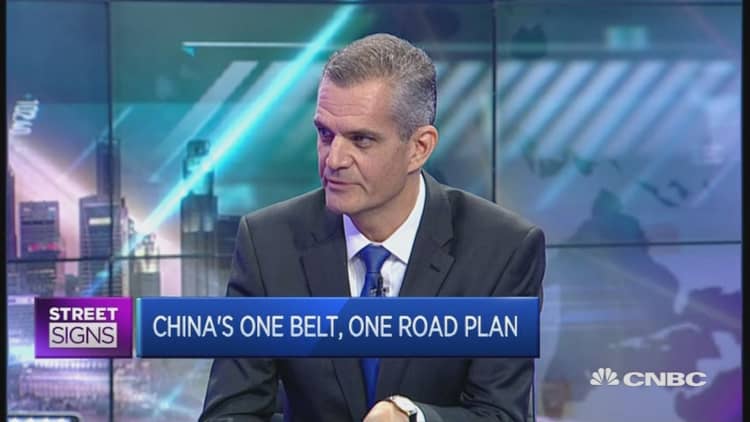Coal miners operating in Mongolia are betting on China's massive 'One Belt, One Road' program to improve access to existing markets in China and Russia and enter new ones as far afield as Eastern Europe.
Although Chinese demand for coking coal, or metallurgical coal – a key steelmaking ingredient – has recovered, infrastructure constraints in Mongolia, particularly a lack of rail capacity continues to cause 'bottlenecks' and delays in getting product to markets, said David Paull, managing director of ASX-listed Aspire Mining Ltd.
In the longer term, China's efforts to re-invent the Silk Road trading route for the modern era, connecting Asia to the Middle East and Europe will shift the balance.

"One Belt, One Road and investment in Mongolian rail will provide capacity' allowing greater penetration of the Chinese and Russian markets 'and eventually Eastern Europe," Paull told CNBC in a telephone interview on Feb. 21.
Despite the longer-term appeal of new growth markets, Mongolian-focused miners like Aspire remain cautious.
"The coking coal market certainly has stabilized," Paull said. "The capital markets were completely closed to us" during the depths of the commodity price collapse in 2014.

"We reduced ourselves to a skeleton crew to keep ourselves in the game. We're still very much in that mode but more confident in sources of funding if you can point to the fact you can move to the development stage quickly."
In the near term, China's ban on North Korean coal imports is boosting demand for Mongolian coking coal, said Thomas Hugger, founder and CEO of Asia Frontier Capital. "Naturally, Mongolia should be the main beneficiary of this."


